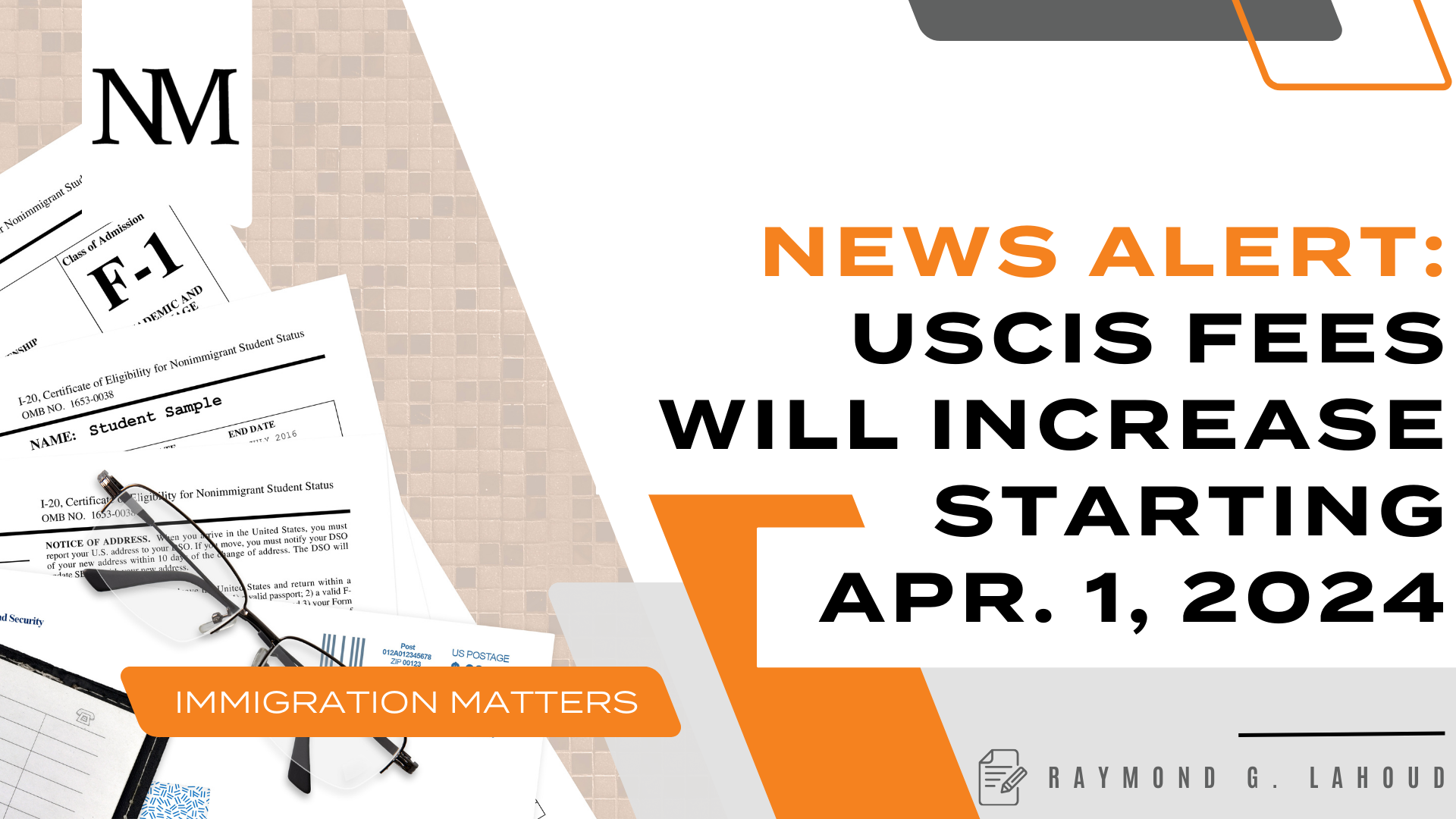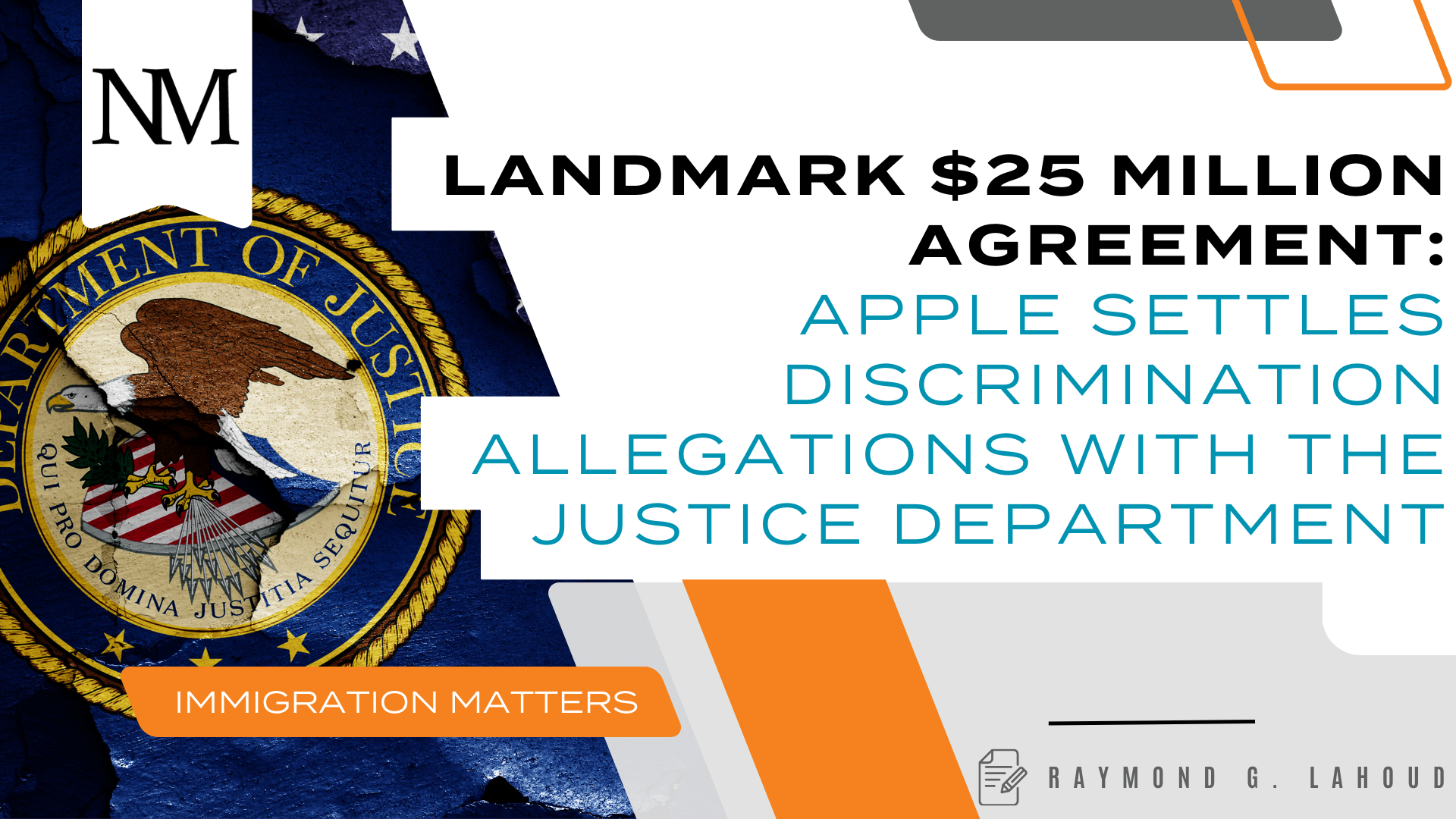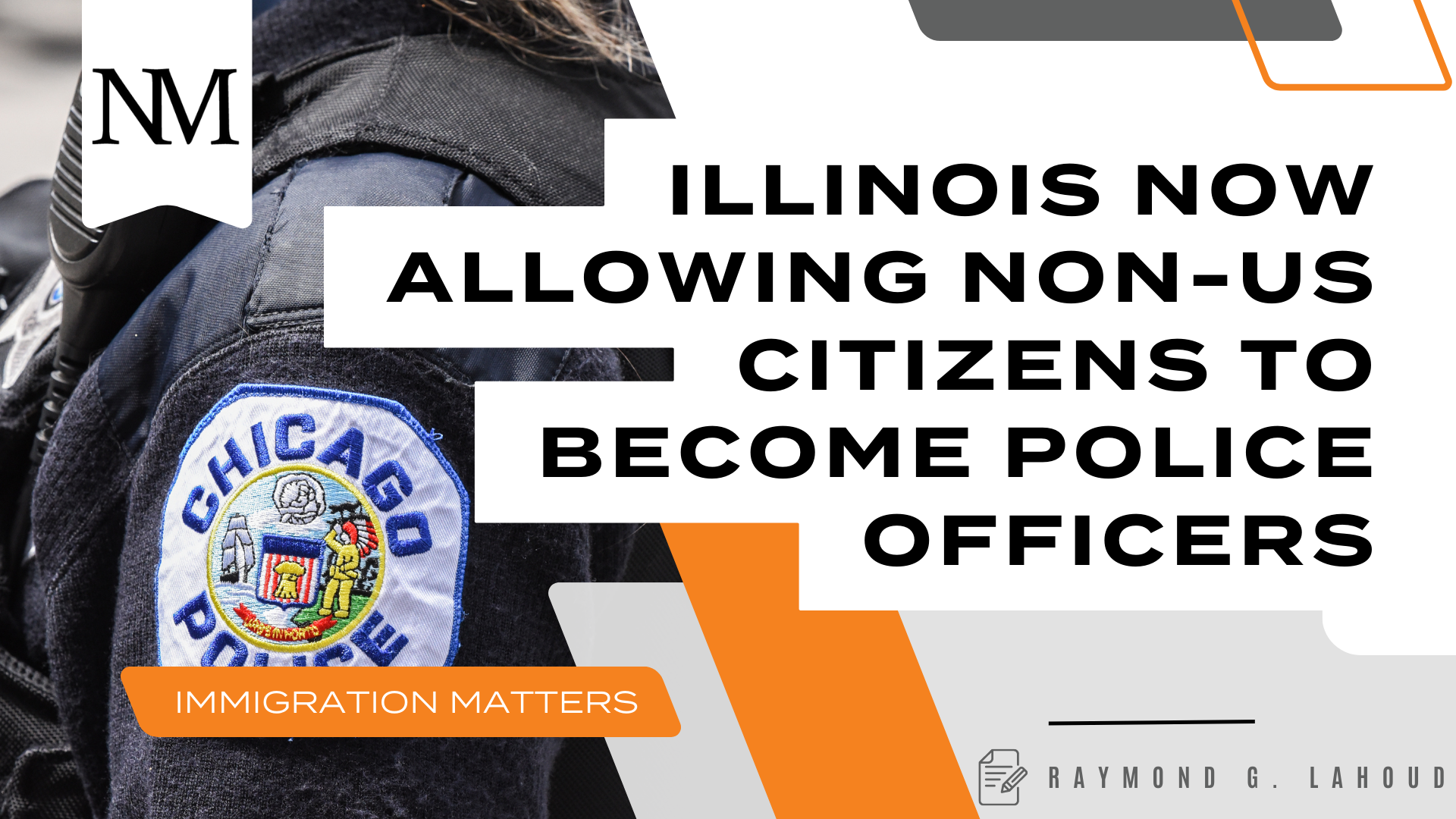Immigration Weekly Round-Up: Work Authorization Extended for Certain Immigrants; DHS to Implement House Arrest for Some Noncitizens; Republican Offers New Citizenship Bill

Federal Government Will Extend Length of Work Authorization for Some Immigrants
The U.S. Citizenship and Immigration Services ("USCIS") has announced plans to increase the validity length of work authorization cards for certain immigrant classifications. This is an effort to reduce the times that immigrant workers would need to file the applications. USCIS is currently facing an enormous backlog of nearly 4 million applications, leading to inordinately long delays for decisions on many applications.
While many applications were previously processed in a matter of weeks, those same applications are now taking several months, or even years, to complete. As a result, immigrants' temporary work authorizations are expiring before a decision is made. Accordingly, USCIS said that they would extend the validity length immigrants falling into six categories:
- Refugees
- Those granted asylum
- Individuals granted withholding of deportation or removal
- Applicants applying under the Violence Against Women Act
- Individuals paroled into the country for urgent humanitarian reasons
- Individuals granted deferred action
The validity length would be extended from one year to two years and would be effective immediately once fully implemented.
Biden Proposes House Arrest in Lieu of Detention for Immigrants
As an alternative to immigration detention, the Biden Administration has launched a new 120-day pilot program in Houston and Baltimore for between 100 and 200 adults at each location that will require the individuals to remain home during certain hours of the day, such as 8:00 p.m. to 8:00 a.m., with exceptions for jobs or extraordinary circumstances. This pilot program will cost less than $10 per day per person, compared to the current cost of nearly $150 per day for detention.
The new plan was created in an effort to address a large number of arrests at the U.S./Mexico border, as well as limited detention space. The Biden administration has indicated it will seek funding from Congress to place up to 400,000 immigrations in alternative programs rather than detention facilities. Current alternatives do not involve a modified house arrest, and include ankle bracelet monitoring and phone monitoring.
New Legislative Offers Lengthy Pathway to Citizenship
This week, Representative Maria Elvira Salazar (R-Florida) introduced new legislation that would establish a new legal residency program for millions of undocumented immigrants, as well as create a path to citizenship for those who complete the program.
The bill, entitled "The Dignity Act," would institute several changes to the existing immigration system. These would include, in addition to permanent residency for millions in the United States, increase border security and offer expedited processing for asylum. The bill would also require all U.S. employers to use E-verify, a system that assesses whether an employee is authorized to work at the point of hire.
The 483-page legislation lists out many rules and requirements for undocumented immigrants who would be seeking permanent residency, including setting up two long-term programs. Those who qualify would need to undergo a background check, pay back any owed taxes, ensure payment of all taxes moving forward, and pay a $10,000 penalty over a 10-year period. Participants would also be required to have health insurance but would not be eligible for federal subsidies. Additionally, there would be a 2% income tax levy for the participants. After 10 years, participants would have the option of remaining in the country under a renewable visa or enter a program to achieve citizenship. Under this program, participants would need to pay additional fines that would support workforce training for U.S. citizens. Those in the U.S. under the DACA program would also have multiple pathways to permanent resident status, including military services and earning a college degree.
The NM Immigration Blog will continue to follow this issue, including how Democratic lawmakers view the bill and whether an alternative bill is put forward.
If you have any questions about this blog post or any other immigration concerns, please feel free to contact me at wcmenard@norris-law.com or 484-544-0022.




